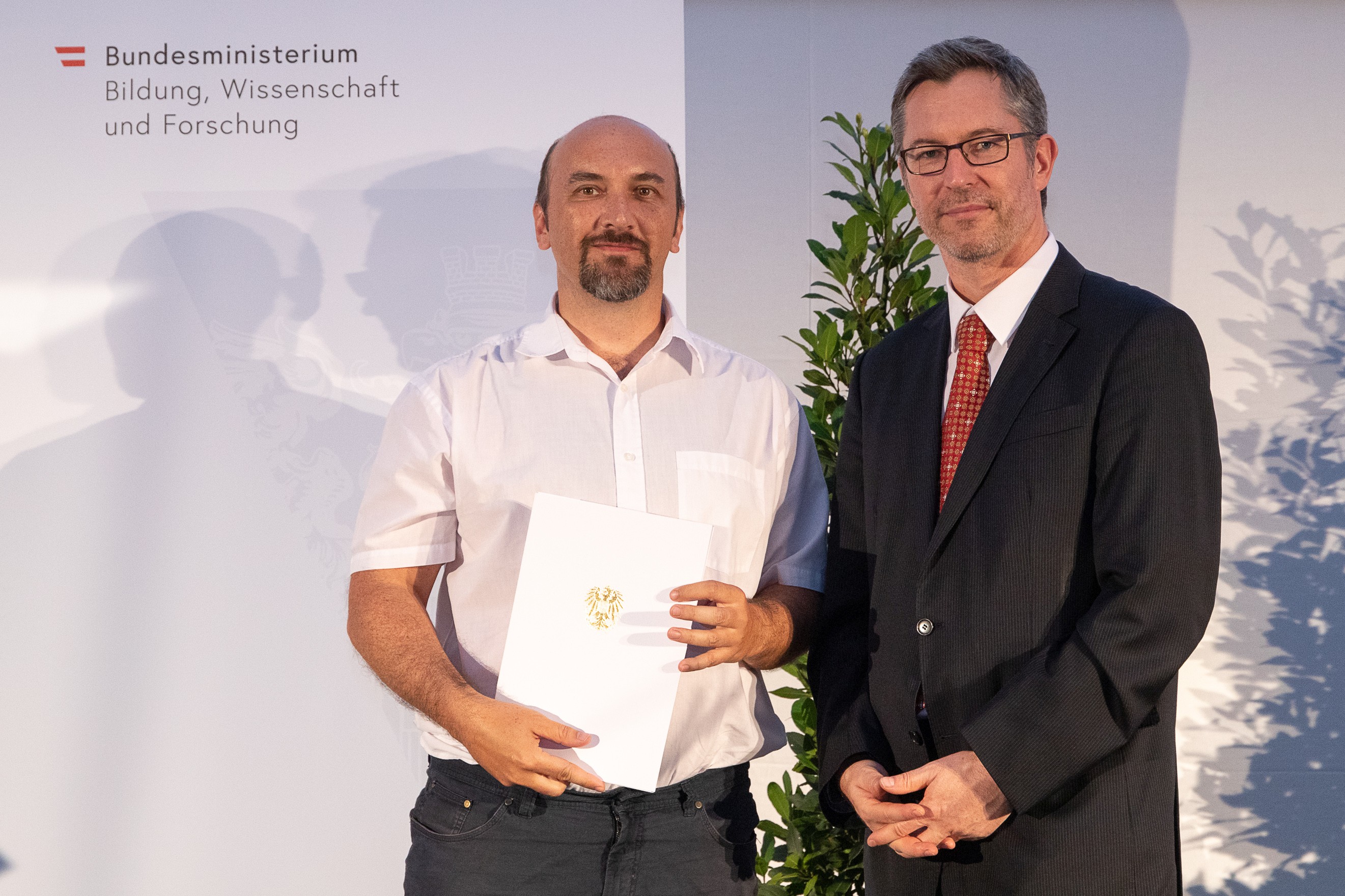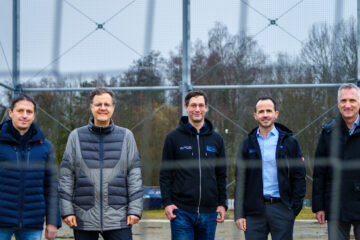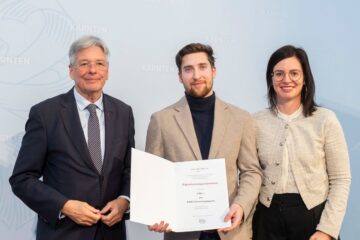
Recognizing excellence in teaching, the Austrian “Ars docendi” state prize was awarded for outstanding teaching concepts and teachers on June 24th, at the seventh annual ceremony. The submission by Christoph Klemenjak and Wilfried Elmenreich was nominated for the top spot on the shortlist in the category “research-led or art-guided teaching”.
Every year, the Austrian Federal Ministry of Education, Science and Research awards the national “Ars docendi” prize for exceptional achievements in teaching and teaching concepts. Nominations are put forward by the student representatives, rectors, or faculty representatives. Judging 131 submissions from 44 higher education institutions, an international panel of experts compiled a shortlist, from which this year’s prize winners subsequently emerged. The “Ars docendi” prize was conferred for the seventh time in 2019, and is the only Austrian prize to recognize outstanding achievements in teaching at all universities, private universities, universities of applied sciences, and university colleges of teacher education.
The nomination in the category of “research-led or art-guided teaching” referred to the “Lab on Energy Informatics” run by young scientist Christoph Klemenjak and Wilfried Elmenreich, professor for smart grids from the Department of Networked and Embedded Systems at the University of Klagenfurt. The team comprised of Klemenjak and Elmenreich was granted first place on the shortlist and was the only entry in this category to be honoured with a shortlist nomination.
The fundamental concept of the course “Lab on Energy Informatics” is to encourage the students to get actively involved in developing and testing solutions for the energy system transformation. On the one hand, this hands-on approach makes it easier to comprehend complex concepts and, on the other hand, it increases the students’ motivation to get to grips with the subject matter. In addition to conveying contents of a technical nature, particular focus is placed on offering the students the opportunity to gain insights into current research, especially with regard to topics which have a direct impact on future potential solutions aimed at mitigating climate change. In this context, the various technical solutions discussed are not regarded as a panacea; rather, students are shown what the latest research issues are, which opportunities and challenges they harbour, and how the students themselves might be able to contribute to these topics.
The lab course is divided into five modules, with each module dedicated to a specific topic. The modules cover: photovoltaic systems, small wind energy plants, smart metering, the application of concepts of artificial intelligence in energy networks, and the simulation of intelligent power grids. In each module, the students work on relevant assignments and conduct practical experiments. The distinctive feature of this approach is the combination of tried and tested teaching systems with the results of global and in-house research. This means that the students gain the broadest possible spectrum of competences when it comes to solving pressing global problems.
The course “Lab on Energy Informatics” is scheduled to return in the winter semester of 2019/20.
Fotocredit: Ars docendi state prize | BMBWF/Martin Lusser




